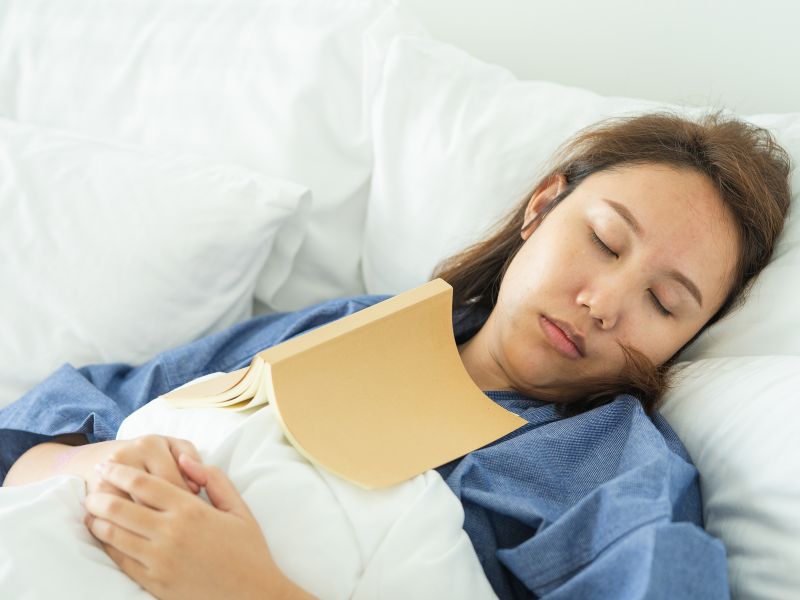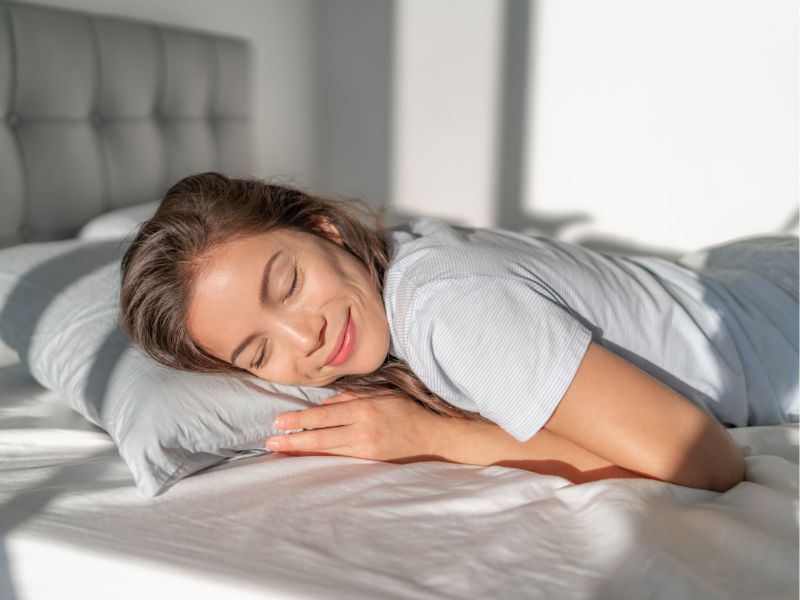Discovering your sleep language, similar to love languages, can be an enlightening way to understand your sleep patterns and enhance your rest. Developed by Dr. Shelby Harris, a clinical sleep psychologist, in collaboration with Calm, a renowned source for meditation programs and sleep tips, sleep languages offer a practical framework for addressing sleep preferences and issues.
With five distinct sleep languages, individuals can shift between them or experience changes over time. The aim is to provide a simplified understanding of sleep and its challenges without overwhelming anyone. By identifying your sleep language, you can gain valuable insights into your sleep needs and strive for improved rest.

Canva. com
The ‘Words Of Worry Sleeper’
Harris observed a common type of sleeper called the “worry sleeper,” who frequently experiences nighttime anxiety. They struggle to fall asleep or wake up early due to racing thoughts. Harris noticed a significant increase in such sleepers during the initial stages of the COVID-19 pandemic.
The ‘Gifted Sleeper’
Being a self-proclaimed great sleeper might put you in the gifted sleeper category. However, Harris warns that it could signal an underlying problem. Falling effortlessly in any situation could indicate sleep apnea or other issues affecting sleep quality. If you can doze off quickly and anywhere, it may imply that your body isn’t getting adequate rest at night.
The ‘Too Hot To Handle Sleeper’
The “too hot to handle sleeper” experiences excessive heat at night, as the name suggests. Several factors can contribute to being a hot sleeper, with perimenopause and menopause being frequent causes, according to Harris.

Canva. com
The ‘Light As A Feather Sleeper’
Harris described the “light as a feather sleeper” as someone who experiences restless and fragmented sleep. Although they may manage to sleep adequately, their sleep is often disrupted. Signs of this include consistently waking up feeling tired, even when going to bed early enough to achieve the recommended 7 to 9 hours of sleep.
The ‘Routine Perfectionist Sleeper’
Harris explains that the routine perfectionist sleeper is characterized by sleep anxiety and an obsession with sleep hygiene. Some individuals take it to an extreme, as Harris notes, avoiding travel or refraining from enjoying a social drink due to fear of sleep disruptions.
